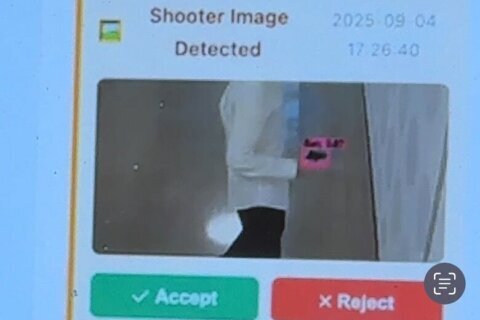Montgomery County, Maryland is discussing which mental health resources are available for public safety employees and where assistance falls short.
What first responders see and experience while on the job can take a dramatic toll on their mental health.
“Line-of-duty deaths in fire service have been surpassed by suicides in the fire service. That is a frightening fact,” Montgomery County Fire and Rescue Services Chief Scott Goldstein said of the national statistics.
Goldstein was among several speakers addressing the Montgomery County Council Public Service committee as it begins the process of determining if more funding is needed in the upcoming budget for mental health services for the county’s first responders.
This hearing comes more than two months after Montgomery County police officer Thomas Bomba took his own life at a parking garage in Silver Spring.
Montgomery County Fire Battalion Chief Stacey Daniel said for firefighters in need, the trauma can come from one traumatic event. Many times, it is the culmination of what a person sees over time can lead to post-traumatic stress disorder or depression.
“Things that you’ve seen over the years, things that you dealt with over the years and you just sort of put it in a box, put it in a box, and that box gets very, very heavy,” Daniel said.
To help, the fire department has a staff psychologist who begins the process of helping fire personnel in need.
For the police department, there are two staff psychologists. County’s Police Chief Marcus Jones said they could use more.
“With 2,000 employees, there’s a need for additional psychologist,” Jones said.
While county insurance covers behavioral health, one problem according to leaders of the departments, is those who seek help encounter psychologists who do not have the experience to help.
Some psychologists, according to Daniel, become overwhelmed with emotion when hearing about the truly horrific things first responders see on the job.
“I’ve experienced that firsthand. I made a psychologist cry once.” Daniel said.
In those instances, the session becomes traumatic for the psychologist, and is not able to help the patient who came for treatment.
“There needs to be understanding and awareness to what men and women within public safety have interfaced with,” Goldstein said.
Another issue mentioned was accessibility to providers outside of the departments, as waiting lists can be long and scheduling can be hard to juggle with the out-of-the-ordinary hours some first responders work.
Many public safety departments said they focus on mental health training and have built peer help programs. As a result, others who are familiar with struggles the job can present are able to lend a helping hand.
One focus in training is addressing the stigma surrounding mental health.
Council members in the committee meeting listened to the concerns of the departments, saying the discussion will continue with a joint committee hearing on the topic that will be held at a future date.
“We’re going to continue to work … this is obviously something that everyone is extremely concerned about, obviously the statistics alone prove we need to be concerned about it,” county council member Sidney Katz said.
If you are struggling with thoughts of suicide or worried about a friend or loved one, help is available. Call the National Suicide Prevention Lifeline at 1-800-273-8255 [TALK] – for free, confidential emotional support 24 hours a day, seven days a week.








